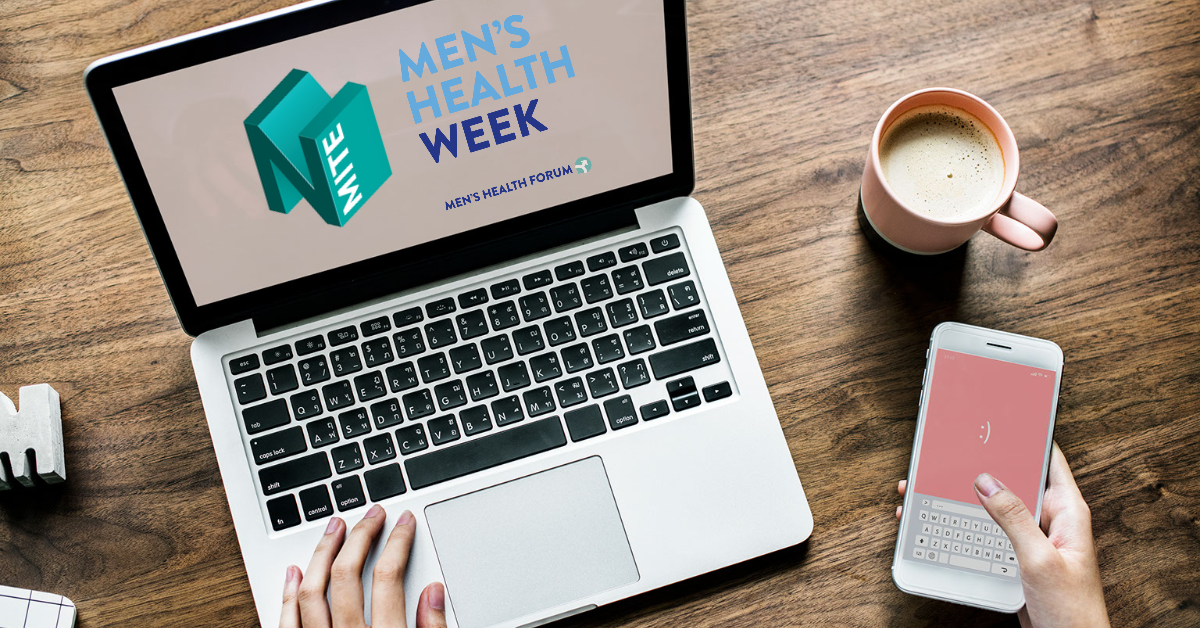
The iPhone was born in 2007. Those born in the same year will turn 16 this year. They've grown up with a high-performance computer in their pocket. What are the implications for men's health? #MensHealthWeek
Men’s health week has landed for 2023. With previous years having focused on the impact of Covid-19 and lockdown measures, this year looks to focus on the ever-evolving repercussions of the Internet.
Technology has become more accessible than ever before, and though we can’t dispute the wide range of benefits, there are downsides. In 2023, almost every app on a mobile device possesses the ability to heighten the user’s dopamine levels significantly; a simple device, once used solely for contact, has become a daily necessity. The potential for addiction is obvious, and although it may not fit many people’s definition of an addiction, even an 'addiction' to a benign app is going to cost us the time and attention we could have devoted to more meaningful things. But what about when it starts to have a negative impact on our money, relationships, work...?
Students at New Model Institute for Technology and Engineering (NMITE) in Hereford, learn in part through challenges set by one of the institution’s many employer partners. Integrated throughout NMITE’s programmes and something students learn within their studies is to consider engineering and technology within their wider context. Students may have an idea, and it may, in theory, solve a real-world challenge – but is it the best solution? Does the solution consider the impact on society? Is it economical? Resourceful?
Technology has moved at such a speed, particularly within the last 10-15 years, that these considerations have barely held weight up against such advancement – are we now seeing the repercussions of this on the younger generation? With growing evidence that further addictions, particularly those which are known to affect men, have been made worse by 24/7 internet and smartphones, is it no wonder we’re seeing more people from all generations effectively ‘check out’ – and when is it time for us to ‘check in’?
James Newby, President and CEO at New Model Institute for Technology and Engineering (NMITE)
I find my mobile phone and other electronic devices to be both a blessing and a terrible curse. I should probably be upfront in my admission to suffering from some form of “addiction” with them. I feel stress when separated from my device and, whilst I know this is dysfunctional and unhealthy, I cannot seem to overcome it. I know most of us yearn for time and space away from our devices, but few of us are able to make that happen.
The development of such technologies does raise the sort of important ethical questions that confront our students as they learn their engineering skills. How is the impact on society considered when technologies advance? How should we protect ourselves, and others, from the unintended consequences of “progress”?
One positive development I do hope continues, is the willingness of people to openly discuss the mental health challenges that modern life creates. The Hereford Men's Mental Health group exists to help with this, and to provide support. I welcome their work and thank them for helping to make openness about men’s mental health challenges a normal part of life.
And I will try harder to switch the mobile off at night.
Paul Stevens, Joint Founder and Group Co-ordinator at Hereford Men's Mental Health Group (HMMH)
It’s a poignant question; have we become slaves to our mobile devices and social media?
At HMMH, our WhatsApp group has been, quite literally a life saver. Men at their darkest moment who have been actively contemplating suicide have been able to reach out with their feelings to other men who have also experienced similar thoughts. We believe we have prevented at least 3 individuals from taking their own life since the group’s inception. This is a real-world example of how positive the use of mobile technology can be.
The downside for people suffering with mental ill health, and with the prevalence of social media addiction comes the effects of comparison and seeing others curated lives. We see others having a good time, we see what food they're eating and what clothes they're buying. We see their nights out with friends, their holidays, cars, and relationships.
The internet can either be a great tool, or it can become something that drags you down further into despair.
I will leave you with this, if you are that person having a great time spare a moment to just think about that person who is suddenly missing from your peer or friendship group and check in with them, please.
If you feel you need to introduce more concrete steps to tone down your smartphone and internet usage, you may find these simple tips helpful in reprogramming your behaviour:
- Turn off as many push notifications as possible.
- Set screen time limitations via the settings on your device so you can keep better track of your usage.
- Limit your phone usage in the evenings, particularly in the last hour before bed.
- Stay accountable.
- And if you find your device usage is having a detrimental impact on your mental health, work, life, and relationships, or if it’s acting as a gateway towards other addictions, such as gambling, be sure to reach out sooner rather than later for support.
Hereford Men’s Mental Health is a peer support group open to any men in Herefordshire at risk of, suffering from, or recovering from mental illness. It’s also for men experiencing stress, loneliness, low mood and/or recovering from alcohol or substance misuse. The HMMH peer support group meet in person twice a month. A WhatsApp group with over 40 members is available 24 hours a day, 7 days a week. For further information and to view the resources available to the public for Men's Health week visit https://www.menshealthforum.org.uk/mhw and visit https://www.s4il.co.uk/hmmh/ for information on the Hereford Men's Mental Health Group.
To find out more about NMITE’s educational approach and how the HE Institution is preparing its degree students for careers of and for the future, visit https://nmite.ac.uk/






